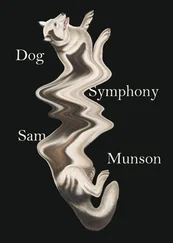R. - I agree that there is a danger, but from that to the assumption on this ground of the inevitability of his attack on the USSR - there is a whole abyss.
G. - The attack on the USSR is determined by the very essence of Fascism. In addition he is impelled towards it by all those Capitalist States which had allowed him to re-arm and to take all the necessary economic and strategical bases. This is quite obvious.
R. - You forget something very important. The re-armament of Hitler and the assistance he received at the present time from the Versailles nations (take good note of this) - were received by him during a special period, when we could still have become the heirs of Stalin in the case of his defeat, when the opposition still existed ... Do you consider this fact to be a matter of chance or only a coincidence in time?
{p. 14} G. - I do not see any connexion between the permission of the Versailles Powers of German re-armament and the existence of the opposition ... The trajectory of Hitlerism is in itself clear and logical. The attack on the USSR was part of his programme already a long time ago. The destruction of Communism and expansion in the East - these are dogmas from the book "Mein Kampf," that Talmud of National-Socialism ..., but that your defeatists wanted to take advantage of this threat to the USSR that is, of course, in accordance with your train of thought.
R. - Yes, at a first glance this appears to be natural and logical, too logical and natural for the truth.
G. - To prevent this happening, so that Hitler would not attack us, we would have to entrust ourselves to an alliance with France ..., but that would be a naivete. It would mean that we believe that Capitalism would be willing to make sacrifices for the sake of saving Communism.
R. - If we shall continue the discussion only on the foundation of those conceptions which apply for use at mass meetings, then you are quite right. But if you are sincere in saying this then, forgive me, I am disappointed; I had thought that the politics of the famous Stalinist police stand on a higher level.
G. - The Hitlerist attack on the USSR is, in addition, a dialectical necessity; it is the same as the inevitable struggle of the classes in the international plane. At the side of Hitler, inevitably, there will stand the whole global Capitalism.
R. - And so, believe me, that in the light of your scholastic dialectics, I have formed a very negative opinion about the political culture of Stalinism. I listen to your words as Einstein could listen to a schoolboy talking about physics in four dimensions. I see that you are only acquainted with elementary Marxism, i.e. with the demagogic, popular one.
G. - If your explanation will not be too long and involved, I should be grateful to you for some explanation of this "relativity" or "quantum" of Marxism.
R. - Here there is no irony; I am speaking with the best intentions ... In this same elementary Marxism, which is taught even in your Stalinist University, you can find the statement which contradicts the whole of your thesis about the inevitability of the Hitlerist attack on the USSR. You are also taught that the cornerstone of Marxism is the assertion that, supposedly, contradictions are the incurable and fatal illness of Capitalism ... Is that not so?
G. - Yes, of course.
{note: see item 13, A missing word in the English translation , below. I have added the word "not" to the next paragraph, within curly brackets, to bring the English translation into line with the Spanish original}
R. - But if things are in fact such that we accuse Capitalism of being imbued with continuous Capitalistic contradictions in the sphere of economics, then why should it { not} necessarily suffer from them also in politics? The political and economic is of no importance in itself; this is a condition or measurement of the social essence, but contradictions arise in the social sphere, and are reflected simultaneously in the economic or political ones, or in both at the same time. It would be absurd to assume fallibility in economics and simultaneously infallibility in
{p. 15} politics - which is something essential in order that an attack on the USSR should become inevitable - according to your postulate - absolutely essential.
G. - This means that you rely in everything on the contradictions, fatality and inevitability of the errors which must be committed by the bourgeoisie, which will hinder Hitler from attacking the USSR. I am a Marxist, Rakovsky, but here, between ourselves, in order not to provide the pretext for anger to a single activist, I say to you that with all my faith in Marx I would not believe that the USSR exists thanks to the mistakes of its enemies ... And I think that Stalin shares the same view.
R. - But I do think so ... Do not look at me like that, as I am not joking and am not mad.
G. - Permit me at least to doubt it, until you will have proved your assertions.
R. - Do you now see that I had reasons for qualifying your Marxist culture as being doubtful? Your arguments and reactions are the same as any rank and file activist.
G. - And they are wrong?
R. - Yes, they are correct for a small administrator, for a bureaucrat and for the mass. They suit the average fighter ... They must believe this and repeat everything as it has been written. Listen to me by way of the completely confidential. With Marxism you get the same results as with the ancient esoteric religions. Their adherents had to know only that which was the most elementary and crude, insofar as by this one provoked their faith, i.e. that which is absolutely essential, both in religion and in the work of revolution.
G. - Do you not now want to open up to me the mystical Marxism, something like yet another freemasonry?
R. - No, no esoterics. On the contrary, I shall explain it with the maximal clarity. Marxism, before being a philosophical, economic and political system, is a conspiracy for the revolution. And as for us the revolution is the only absolute reality, it follows that philosophy, economics and politics are true only insofar as they lead to revolution. The fundamental truth (let us call it subjective) does not exist in economics, politics or even morals: in the light of scientific abstraction it is either truth or error, but for us, who are subject to revolutionary dialectic, it is only truth. And insofar as to us, who are subject to revolutionary dialectic, it is only truth, and therefore the sole truth, then it must be such for all that is revolutionary, and such it was to Marx. In accordance with this we must act. Remember the phrase of Lenin, in reply to someone who demonstrated by way of argument that, supposedly, his intention contradicted reality: "I feel it to be real" was his answer. Do you not think that Lenin spoke nonsense? No, for him every reality; every truth was relative in the face of the sole and absolute one: the revolution. Marx was a genius. If his works had amounted to only the deep criticism of Capitalism, then even that would have been an unsurpassed scientific work; but in those places where his writing reaches the level of mastery, there comes the effect of an apparently ironical work. "Communism" he says "must win because Capital will give it that victory, though its enemy." Such is the magisterial thesis of Marx ...
{p. 16} Can there be a greater irony? And then, in order that he should be believed, it was enough for him to depersonalize Capitalism and Communism, having transformed the human individual into a consciously thinking individual, which he did with the extraordinary talent of a juggler. Such was his sly method, in order to demonstrate to the Capitalists that they are a reality of Capitalism and that Communism can triumph as the result of inborn idiocy; since without the presence of immortal idiocy in homo economico there could not appear in him continuous contradictions as proclaimed by Marx. To be able to achieve the transformation of homo sapiens into homo stultum is to possess magical force, capable of bringing man down to the first stage of the zoological ladder, i.e. to the level of the animal. Only if there is homo stultum in the epoch of the apogee of Capitalism could Marx formulate his axiomatic proposition: contradictions plus time equal Communism. Believe me, when we who are initiated into this, contemplate the representation of Marx, for example the one which is placed above the main entrance to the Lubianka, then we cannot prevent the inner explosion of laughter by which Marx had infected us; we see how he laughs into his beard at all humanity.
Читать дальше












